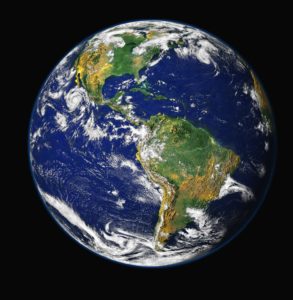 Uh-oh. The Earth is really warming up, and very rapidly. Sunday was the hottest day recorded globally. But then... Monday was even hotter! This means that in the space of several days, two global records were set in two days.
Uh-oh. The Earth is really warming up, and very rapidly. Sunday was the hottest day recorded globally. But then... Monday was even hotter! This means that in the space of several days, two global records were set in two days.
And it will continue to get warmer (hotter) in the coming months and years. We do know what is causing this climate change of increased global warmth - it's the burning of fossil fuels (e.g., gas, oil, coal). The big question - can humans change their ways?
From The New York Times, the Climate Newsletter: Earth’s Hottest Days Ever
Twice this week, global temperatures broke records, but scientists are more concerned about a longer-term pattern of hotter weather.
This past Sunday was the warmest single day ever recorded, according to the Copernicus Climate Change Service, the European Union-funded research organization. That is, until Monday, when global temperatures inched up a bit more. Then Monday became the hottest day in modern history, with an average global temperature of 17.16 Celsius or 62.88 Fahrenheit. Tuesday was almost as hot.
But what stunned scientists wasn’t the temperature of the hottest day ever recorded, which was up slightly from last year, it was how much hotter than usual it’s been during the rest of the year, between these two summer peaks. Instead of returning to something close to normal, average global surface temperatures have remained stubbornly high for more than a year now.
“What is truly staggering is how large the difference is between the temperature of the last 13 months and the previous temperature records,” said Carlo Buontempo, director of Copernicus. “We are now in truly uncharted territory, and as the climate keeps warming, we are bound to see new records being broken in future months and years.”
Extreme heat is killing people around the globe. There have been hundreds of heat-related deaths this year in Maricopa County, Ariz., which includes Phoenix. Temperatures there hit 118 degrees Fahrenheit this month.
In many cities, the sidewalks are hot enough to give people contact burns. The extreme heat is not just limited to desert cities, either: Sacramento and Portland, Ore., are also withering under the heat, and officials there are working on plans to increase tree cover and provide portable cooling units to vulnerable residents.
As Damien Cave and Somini Sengupta reported recently, extreme heat is leading to catastrophes at large gatherings. At least 1,300 people died at this year’s hajj, an Islamic pilgrimage in Saudi Arabia, as temperatures reached 120 degrees. It’s expected to be sweltering during the upcoming Olympics in Paris, posing potential risks for athletes.
But the recent records weren’t just fueled by record heat in populated areas. Many of the most unusually warm places on Earth were near the poles.
